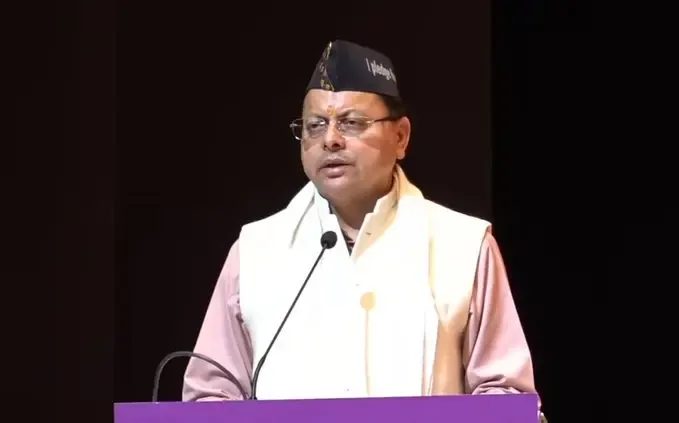What Lessons Can We Learn From the Silkyara Rescue Anniversary?

Synopsis
Key Takeaways
- Effective disaster management is crucial in the face of increasing natural calamities.
- The Himalayan ecosystem plays a vital role in environmental health.
- Climate change is a significant threat, requiring urgent action to maintain ecological balance.
- Collaboration among researchers, policymakers, and communities is essential.
- Innovative solutions for disaster resilience are needed for a safer future.
Dehradun, Nov 28 (NationPress) Marking the second anniversary of the Silkyara Tunnel rescue operation, Chief Minister Pushkar Singh Dhami spearheaded discussions with experts on the critical necessity for effective disaster management and the development of resilient communities, especially as disasters occur more frequently and with greater severity.
While addressing the World Disaster Management Conference 2025, Dhami emphasized that disaster management in the Himalayan region is not just about the mountains and snow-covered peaks, but serves as a vital lifeline for the entire Indian sub-continent.
“The Himalayan ecosystem impacts the Asian environment significantly and plays a crucial role in the global carbon life-cycle,” he noted.
Pointing out the threats to the ecological balance of the Himalayan regions from climate change, pollution, and unregulated exploitation of natural resources, the Chief Minister underscored the urgent requirement to tackle the disturbances caused by these factors.
“Recent cloudbursts and landslides in the Himalayan areas are indications of these dangers,” he stated, attributing the destruction to climate change and extreme weather conditions.
“It is essential for researchers and policymakers to collaborate effectively and align their efforts; this Summit will act as a conduit for devising solutions to our pressing challenges,” he stated.
Dhami added that, under the vision of Prime Minister Narendra Modi, disaster mitigation has gained significant focus across the nation.
He noted that PM Modi has introduced a disaster response strategy founded on four pillars: capacity building, speed, efficiency, and accuracy.
He referred to the rescue operation at Silkyara Bend-Barkot tunnel along the Dharasu-Yamunotri section of National Highway 134 in Uttarakhand as an exemplary model of effective disaster management. This operation drew international attention after a landslide trapped 41 workers for over two weeks in November 2023.
He expressed hope that the strategies formulated during the conference would be beneficial not only for Uttarakhand but also for other Indian hill states and the global community.
The World Summit on Disaster Management (WSDM) 2025 serves as a global platform bringing together researchers, scientists, policymakers, practitioners, and industry leaders to tackle these urgent issues.
Hosted by the Uttarakhand Council for Science and Technology (UCOST), this summit encourages experiential learning, multi-stakeholder engagement, and the development of innovative, scalable solutions for a safer and more resilient future.









